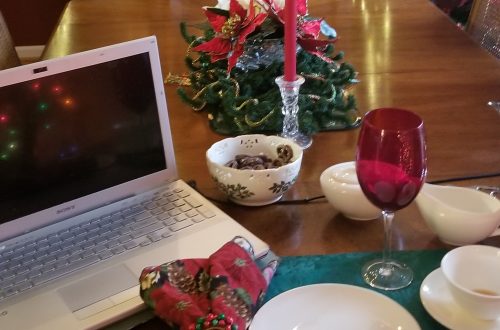Invisible Invitation
I sat at my desk feeling invisible. Questions flooded my soul. What’s my role? Does my life matter? Am I making any difference? I tried to ignore my soul’s lonely ache. My contribution felt small and insignificant.
I sat at my desk feeling invisible. Questions flooded my soul. What’s my role? Does my life matter? Am I making any difference? I tried to ignore my soul’s lonely ache. My contribution felt small and insignificant.
After throwing not just one pity party, I took my grumblings to the Lord. As I sat on my bedroom floor, I was reminded of what Paul told the Corinthian church. He refers to himself as a clay pot with a treasure hidden inside, “to show that the surpassing power belongs to God and not to us” (2 Cor. 4:7). The point of my existence isn’t to be acknowledged. It’s to be invisible.
Like that humble pot, my purpose is to show off God’s power as others peer through my brokenness. Such a noble task requires intense humility. Paul says certain death awaits those who experience the Savior’s life (2 Cor. 4:11). It sounds like a romantic concept until the dying involves our job description, our marriage, or our pride.
It wasn’t until several days and a few more parties later that this lesson sank in. My feelings of invisibility were an invitation. The invisible God was offering me a chance to experience his life. But I ignored it. And wanted no part of the death he offers.
Why? Because his life costs more than I want to give. Here my demands grow silent and my expectations deflate. Yet in my stubbornness, I’d walked away.
But thankfully God doesn’t allow our one-guest parties to last long. His invitation persists, “Come die in me and know my life.”
Pressure and pain narrow our focus. They give purpose to the failed projects, dirty dishes, and lonely souls. They prepare us for the day we’ll behold the one who died to give us life.
Perhaps that’s why Paul calls our present struggles light and momentary. They remind us that we work not for what’s seen, but what’s unseen (2 Cor. 4:12-14). Our feelings of insignificance are really an invitation to behold eternity.
So will you join me in embracing the invisible? It will require our death and more pain than we expected. But there we find hope. His image is being reflected in us. As we become invisible, he becomes visible. And we ready ourselves for the day when we’ll behold our invisible God.



3 Comments
Tiffany Stein
Thank you, Amanda, for so
Thank you, Amanda, for so boldly sharing God's truth. This is a profound piece, and a great reminder for me to pray for invisibility, not significance.
Sandra Glahn
Beautiful!
Thank you for this timely word, Amanda!
Kelly Arabie
Wise words
I so appreciate your thoughts, especially today. Thank you for a great reminder of what faith really is!